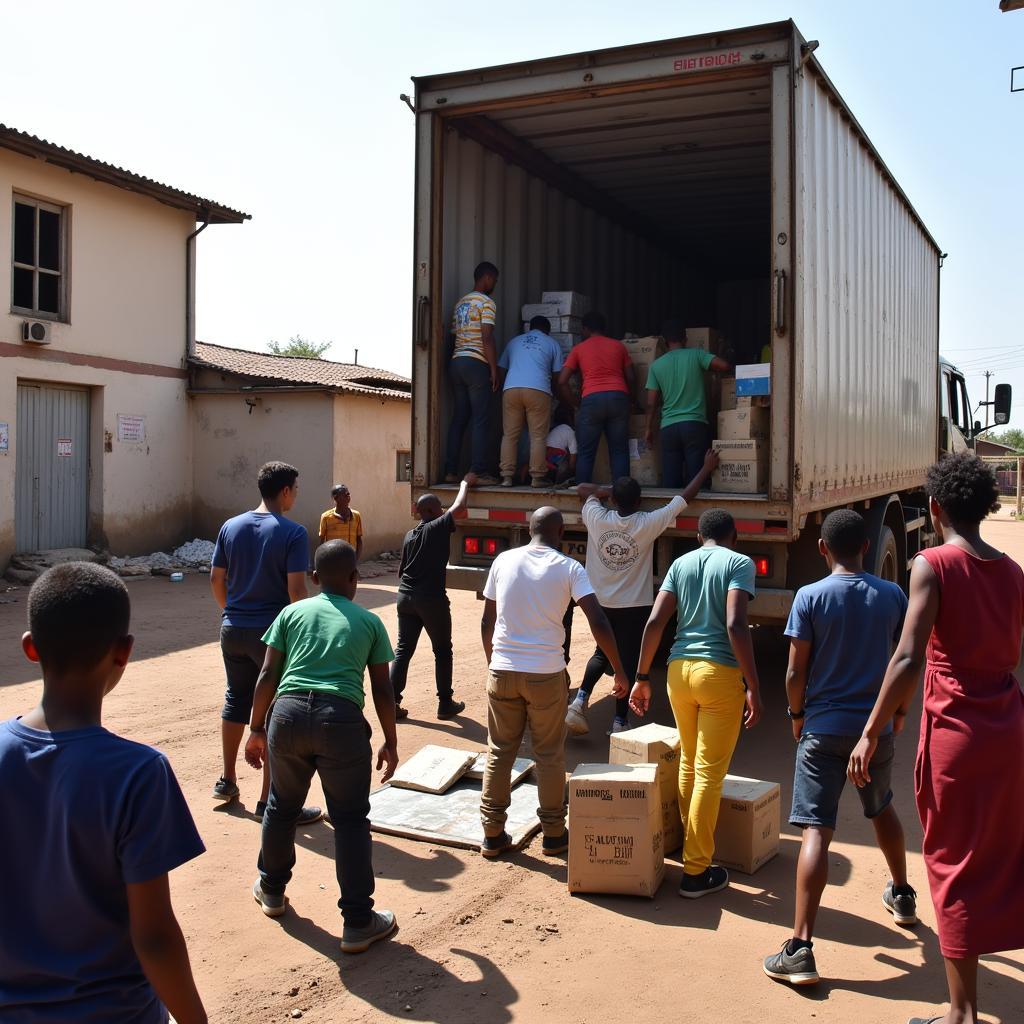Citizenship In Society isn’t just about holding a passport; it’s about actively participating in shaping the world around us. It’s about understanding our rights and responsibilities, engaging with our communities, and contributing to a more just and peaceful future. From local neighborhoods to global networks, our actions, however small, can have a ripple effect, influencing positive change and building stronger, more inclusive societies.
Understanding the Foundations of Citizenship in Society
What does it mean to be a citizen? At its core, citizenship in society encompasses a range of interconnected elements, including legal status, civic engagement, and a sense of belonging. It’s about being a contributing member of a community, working collaboratively to address shared challenges and build a better future for all. This involves respecting the rule of law, participating in democratic processes, and upholding values such as equality, justice, and respect for human rights. It also means understanding and appreciating the diverse perspectives and experiences that enrich our societies.
Citizenship begins in our local communities. Whether it’s volunteering at a local food bank, participating in a neighborhood watch program, or simply engaging in respectful dialogue with our neighbors, we all have a role to play in strengthening the fabric of our communities. These small acts of citizenship can have a profound impact, creating a sense of connection, fostering trust, and building more resilient communities.
 Active Citizens Engaging in Community Projects
Active Citizens Engaging in Community Projects
The Evolving Landscape of Citizenship in Society
The concept of citizenship in society is constantly evolving, influenced by factors such as globalization, technological advancements, and changing social norms. The rise of digital platforms has created new avenues for civic engagement, allowing individuals to connect with others, share information, and mobilize around shared causes. However, it’s crucial to navigate these digital spaces responsibly, promoting constructive dialogue and combating misinformation. You can learn more about the specific requirements for programs like the Citizenship in Society merit badge through resources like the Citizenship in Society Merit Badge Worksheet.
How has technology impacted citizenship? Technology provides new platforms for civic engagement and information sharing. It allows for greater transparency and accountability in government and fosters global connections across cultures. However, it also presents challenges such as misinformation and online polarization.
Navigating the Digital Age as Responsible Citizens
In today’s interconnected world, digital citizenship is becoming increasingly important. This encompasses responsible online behavior, critical thinking skills, and a commitment to using technology for the greater good. By fostering media literacy, promoting ethical online interactions, and combating cyberbullying, we can cultivate a positive and productive digital environment that supports the values of citizenship in society. This is an important part of understanding citizenship in society merit badge.
“Digital citizenship requires a mindful approach, recognizing the power of online platforms to shape perceptions and influence behavior,” says Dr. Anya Sharma, a leading expert in digital ethics. “It’s about promoting critical thinking, empathy, and respectful dialogue in the digital sphere.”
The Power of Global Citizenship
Citizenship in society extends beyond national borders. As global citizens, we are interconnected and share a responsibility to address global challenges such as climate change, poverty, and inequality. By embracing our shared humanity and working together across cultures and borders, we can build a more just and sustainable world for all. Resources like cit in society merit badge provide a structured way to learn more about these important concepts.
What are the responsibilities of global citizens? Global citizens are responsible for promoting human rights, advocating for sustainable development, and working towards peace and justice worldwide. They recognize their interconnectedness and strive to create a more equitable and sustainable world.
“Global citizenship is about recognizing our shared humanity and working together to address the challenges facing our planet,” states Professor David Chen, a renowned scholar in international relations. “It’s about fostering empathy, understanding, and collaboration across cultures and borders.”
 Global Citizenship and International Collaboration
Global Citizenship and International Collaboration
Cultivating Citizenship in Society for Future Generations
Education plays a vital role in shaping responsible citizens. By fostering critical thinking skills, promoting civic engagement, and instilling a sense of social responsibility, we can empower future generations to become active and informed citizens. Programs like the Citizenship in Society merit badge online and the Citizenship in Society worksheet offer valuable opportunities for young people to learn about citizenship and develop the skills they need to make a positive difference in the world.
Conclusion
Citizenship in society is a journey, not a destination. It requires continuous learning, reflection, and action. By embracing our roles as active and responsible citizens, we can create a ripple effect of positive change, building a more just, peaceful, and sustainable world for all. Let us work together to strengthen the fabric of our communities and create a brighter future for generations to come.
FAQ
- What are the key elements of citizenship in society?
- How can I become a more active citizen in my community?
- What is the importance of digital citizenship in today’s world?
- How can we promote global citizenship and address global challenges?
- What role does education play in shaping responsible citizens?
- How can I learn more about the responsibilities of citizenship?
- What are some examples of civic engagement in action?
For further information, please explore these related resources on our website. You might also find our articles on community involvement and global issues helpful.
When in need of assistance, please contact Phone Number: 02043854663, Email: [email protected] or visit Address: Khu 34, Bac Giang, 260000, Vietnam. We have a 24/7 customer support team.